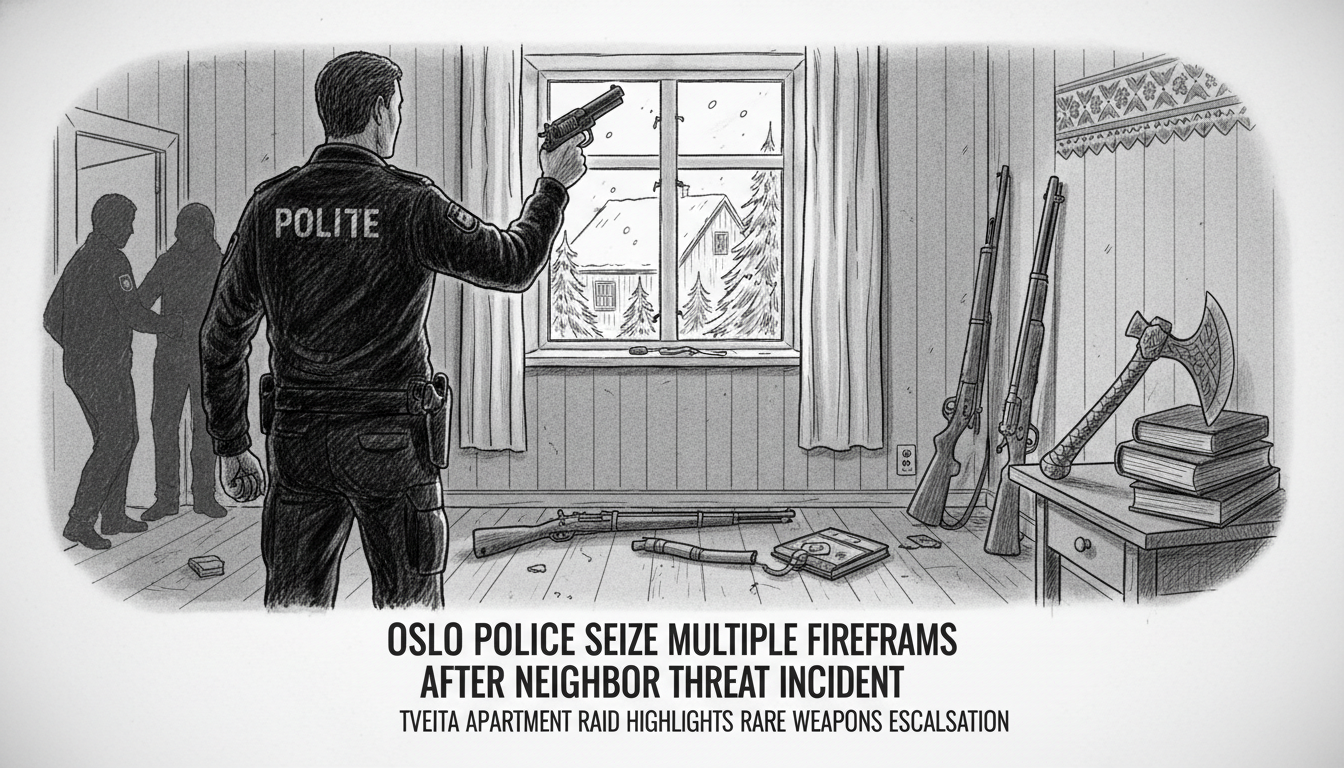Police in Oslo have arrested a man in his forties after he allegedly threatened his neighbor with weapons. The incident occurred in the Tveita neighborhood of eastern Oslo. Officers confirmed they have control of the suspect and the situation.
Authorities initially reported finding one functional firearm in the suspect's apartment. Shortly after their initial search, police discovered two additional pistols. These additional weapons were identified as gas-powered firearms.
Investigators emphasize the relationship between the suspect and the victim appears limited to their status as neighbors. The threatened neighbor is a woman in her fifties. Police found no other connection between the two individuals beyond their residential proximity.
This incident highlights ongoing concerns about firearm possession in Norwegian residential areas. Norway maintains strict gun control laws compared to many other countries. Residents typically require specific licenses for firearm ownership, with regulations governing both real firearms and certain types of gas-powered weapons.
Norwegian police respond quickly to weapons-related threats, reflecting the country's generally low crime rates. The immediate apprehension and weapon seizure demonstrate standard protocol for such situations. Oslo maintains one of Europe's lower violent crime rates, making weapons incidents particularly notable.
What does this mean for neighborhood safety in Oslo? Most Norwegian communities rarely experience such confrontations. The swift police response aligns with standard procedures for potential weapons offenses. Authorities typically conduct thorough investigations when firearms are involved.
Neighbor disputes escalating to weapon threats remain uncommon in Norway. The country's conflict resolution systems typically address such matters through mediation before reaching this stage. This case represents an exception rather than the norm in Norwegian community relations.
The discovery of multiple weapons raises questions about enforcement of firearm storage regulations. Norwegian law mandates secure storage for licensed firearms. The presence of functional weapons in a residential setting during a conflict situation suggests potential regulatory concerns.
International residents in Norway should understand that such incidents remain statistically rare. The country's comprehensive social systems and community policing approaches generally prevent escalations to this level. This case stands out precisely because it contradicts typical neighborhood interaction patterns in Norwegian cities.
Police continue their investigation into how the suspect obtained the weapons and what prompted the threat. The case will proceed through Norway's judicial system, which typically handles weapons offenses with seriousness. The outcome may influence future neighborhood safety protocols in similar residential areas.

